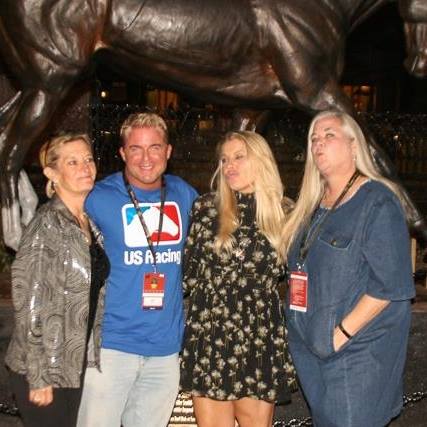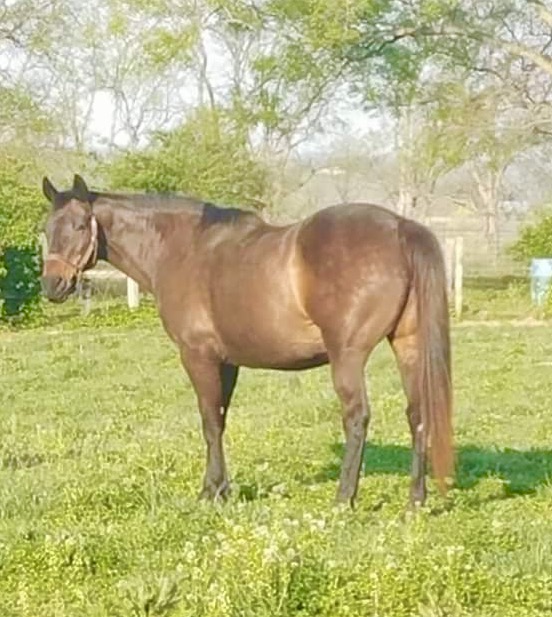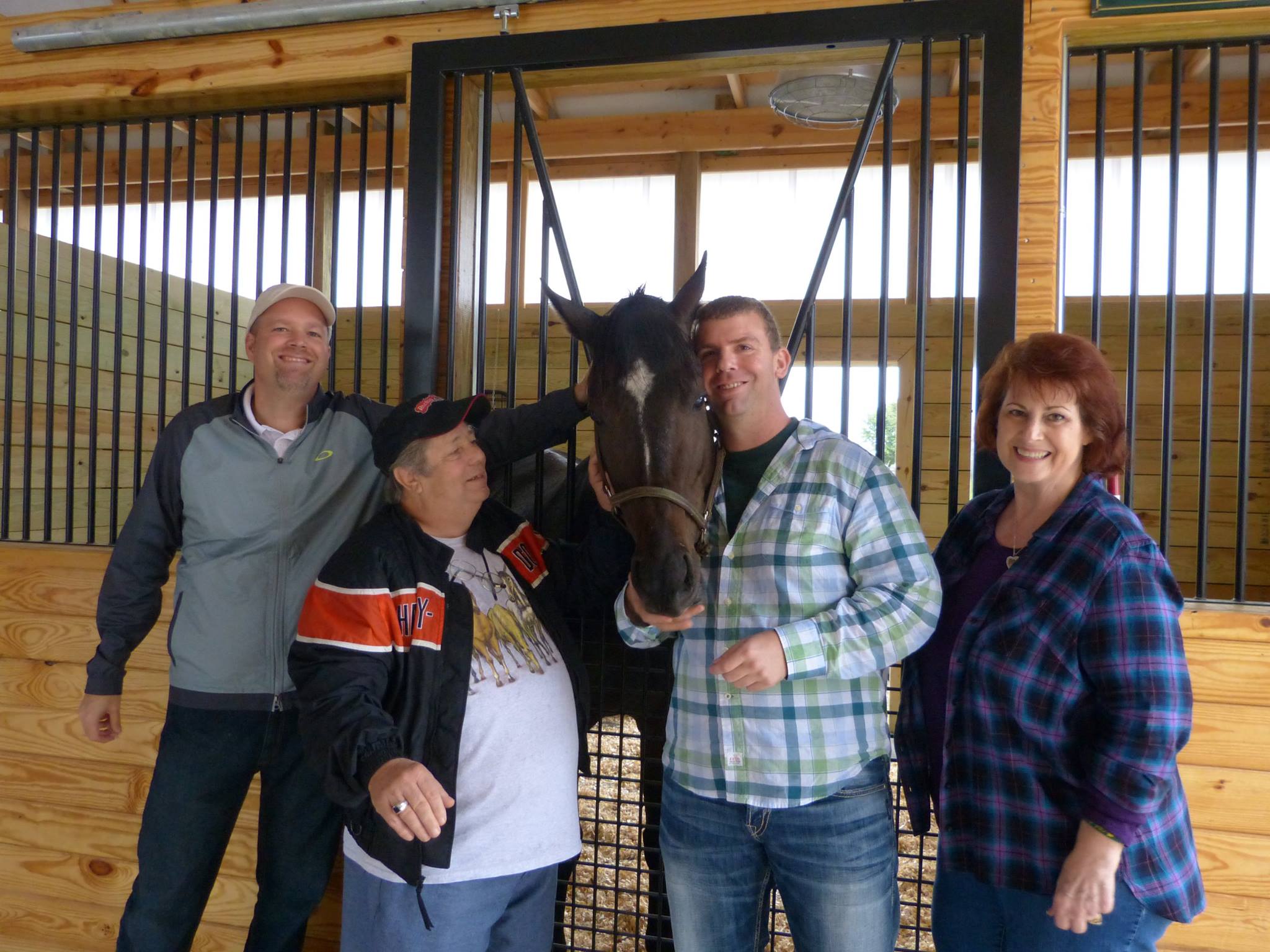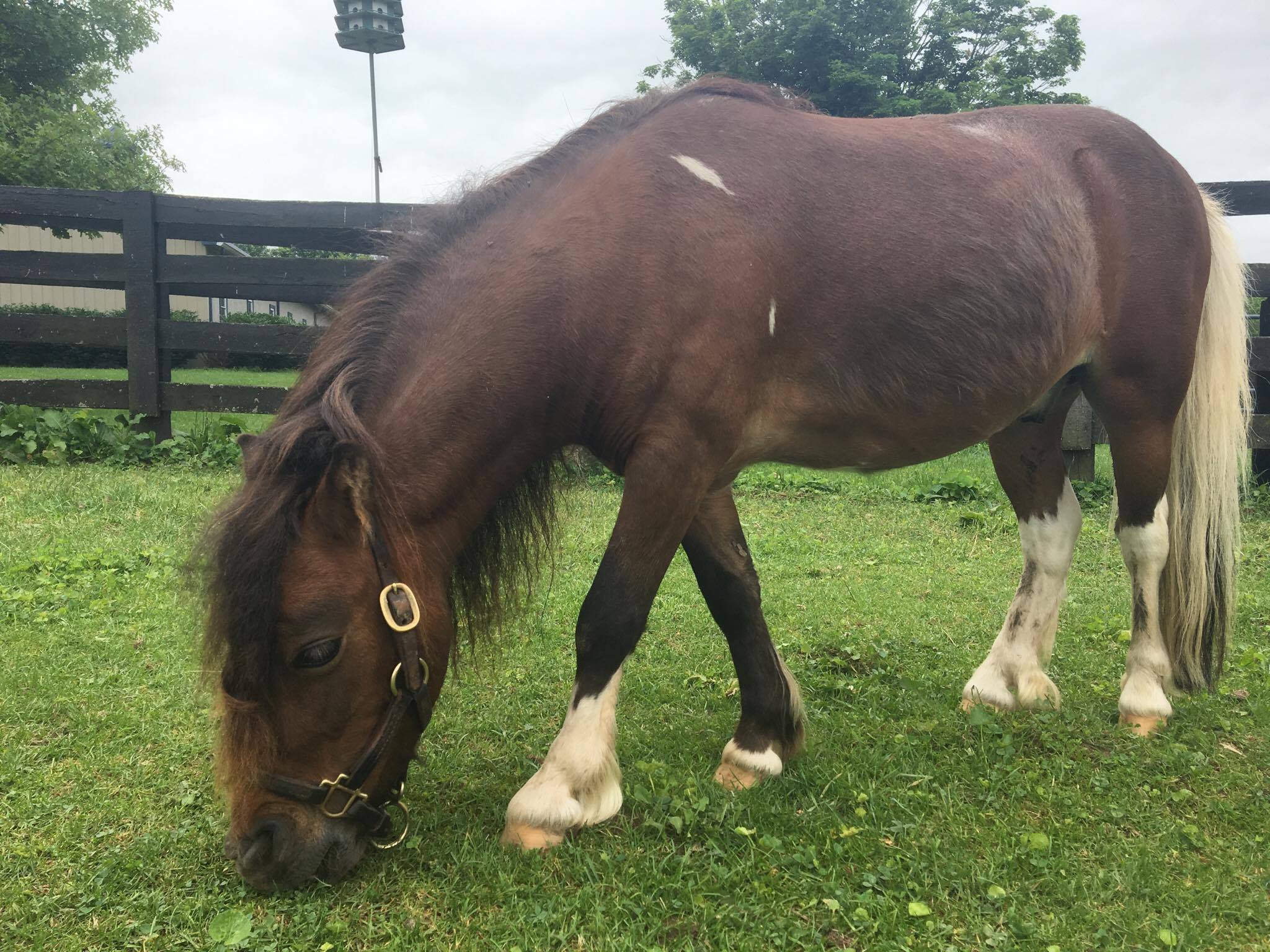Editor’s Note: On May 26, 2016, “The Shocking Untold Story of Maria Borell” was published by USRacing.com. Written by award-winning journalist Margaret Ransom, the story detailed the neglect of 43 horses entrusted to the care of Breeders’ Cup-winning trainer Maria Borell and her father Charles. It quickly became the story of the year and galvanized the entire horse racing industry.
Money was raised to care for the mistreated horses and volunteers — many of whom traveled great distances and put their lives on hold — sprang into action, doing anything they could to nurse the malnourished and, in some cases, gravely ill animals back to health.
The state of Kentucky, where the horses were abandoned, got involved as well.
In late March, Kentucky governor Matt Bevin signed into law HB-200. Known as the “Borell Law”, the new legislation allows courts to order a person convicted of animal cruelty in equine cases to pay restitution costs, as well as forfeit ownership rights to the neglected animals.
Charles Borell ultimately pleaded guilty to nine counts of animal cruelty in an “Alford Plea” deal, while Maria’s exact whereabouts are unknown (though the warrant for her arrest in Kentucky is still active).
The following is Margaret’s update on the 43 horses and proof, at least to me, that happy endings still exist.
Looking Back
A year ago, thanks to the kindness of thousands of people around the world moved by the plight of the 43 horses abandoned in Mercer County, Kentucky, more than $25,000 was donated to a GoFundMe started by longtime rescue advocate Tara Cochran, who turned the money over to the Thoroughbred Charities of America (TCA) to be managed and disseminated by TCA’s Carrie Gilbert for the horses’ care and rehabilitation. Also, a number of central Kentucky farms and organizations within the thoroughbred racing and breeding industry donated money, as well as thousands of dollars’ worth of equipment, feed and horse care supplies when alerted to the situation.

Zippy Chippy Award winners Angie Cheak (left) and Tara Cochran (second from right) with Derek Simon and Margaret Ransom at the 2016 Breeders’ Cup.
Angie Cheak, who with her aunt, Mary Ann Kelley, was the first on-site to care for the abandoned horses following a chance meeting with Charles Borell and who remained in charge of their care until the last horse left the property, says she gets very emotional when given updates for the horses she still refers to as her “babies.” Cheak says that she feels only a tremendous sense of relief when she reminds herself they’ll never be in danger again.
“I see the pictures and I literally burst into tears,” Cheak says. “They all are nothing short of miracles. I mean, to go from the way I found them — most were skin and bones, long, curling feet and many with parasites and rain rot and EPM and even tumors — to the lives they have with the people who love them and care for them now is nothing short of miraculous.”
Cheak said she recently visited the Mercer County Sheriff’s office on a matter she hopes is her last-ever involvement with the Borells. Charles Borell, Cheak revealed, hired an attorney in an effort to sue to “recover” the value of thousands of dollars’ worth of personal items, such as saddles, bridles, halters, tack and equipment that he alleges were left on the property and are now missing.
Cheak said she gave her statement, as did multiple sheriffs’ deputies who were on site before she arrived, as well as the farm’s owner, who also notified the sheriff of the horses abandonment a year ago, and several of the state veterinarians and volunteers.
“The only things on that farm when I got there were two broken lead shanks, a broken shovel, a broken muck rake, a broken wheelbarrow, a couple of feed buckets with no handles anymore and some old blankets saturated with animal urine,” Cheak said. “And some cat food Chuck was feeding the horses when he didn’t have any feed for them.
“There wasn’t so much as a brush or a hoof pick, never mind any feed that wasn’t donated and delivered by the county after the original complaints were filed. The good news is that sheriff said they were closing the case and sending all the statements to the lawyer. Oh, and the sheriff also said they were going to tell [Borell’s attorney] to collect any fees from Charles Borell up front or he’d never get paid.”
Cheak and Kelley adopted one of the 43 horses — a gray Andalusian mare they call Audrey — and are thrilled to have her be a part of their extended animal family, which includes a draft horse, a number of chickens, cats and dogs. Audrey is a constant reminder of the time Cheak and Kelley say means more to them than anything they’ve ever done.
The Horses Today
Of the 43 horses found on the Mercer County farm, 42 survived the long-term neglect and, of those, 28 were placed with TCA-approved aftercare programs, the organization’s executive director, Erin Crady, said, with the majority of those being rehomed directly by staff member Carrie Gilbert, who worked closely with Cheak to make sure the horses and volunteers on the farm had everything they needed from the money and supplies donated. The remainder of the horses were either returned to former owners or placed directly with new owners with assistance from the Kentucky Department of Agriculture.
Z Camelot and Silver Cliff, who were, perhaps, in the worst shape of all when discovered a year ago and whose emaciated, unkempt photos became signature images for the efforts to save the entire herd, both have been blessed with happy endings.
Z Camelot’s former owner, Zayat Stables, found the gelding a home in Pennsylvania, where he is currently in training as an event horse. A recent update on Twitter from Justin Zayat included photos of the now-healthy Z Camelot jumping in a grassy field.
Silver Cliff will spend the rest of his days at the Thoroughbred Retirement Foundation’s Blackburn Facility in Kentucky after returning to the property shortly after being found in Mercer County.

Kidnap Katie (photo by Ann Cheek).
Kidnap Katie, a 22-year-old daughter of Red Ransom, has taken up permanent residence at Jeanne Mirabito’s Our Mims Retirement Haven near Paris, Kentucky. The elderly, unraced mare arrived at Our Mims with tremendous hoof issues, which have improved with a balanced nutrition program. Mirabito says she hopes that in another few months all physical traces of the neglect will be erased forever. The mare is otherwise healthy and happy spending her days with the other retired ladies — and Breeders’ Cup Sprint winner Elmhurst — on Mirabito’s property.
“Kidnap Katie is a very kind mare,” Mirabito said. “It isn’t difficult to see her gratitude as she wraps her neck and head around us in hugs nearly every day. We are blessed to have her here; forever loved, forever safe.”
Astronome, who was never registered and turned three on March 28, spent several months with Aelin Herrington in Tennessee, where he gained a lot of confidence in both himself and humans after spending most of his early life unhandled and unbroken.
“Astronome arrived to me at the beginning of November as a wormy, anemic and lethargic 2-year-old,” Herrington said. “I knew he was a kind soul who would develop into a wonderful all-around horse. Starting him under saddle went flawlessly and, three months later, he was showing on the flat with a 15-year-old. It was his first time around multiple horses and in a coliseum, yet he acted as if he had shown for years.
“It is a wonderful blessing that he survived and has now landed in the best home, which is his forever home. It warms my heart to see such a diamond in the rough land in [a place] where he will be forever cherished and loved.”
Earlier this month, Herrington sold Astronome to Kentucky resident Susan Enlow and he returned to Bluegrass. Enlow renamed him “Chance” and the pair have already bonded and have had a couple of riding lessons together.
The 6-year-old Nobiz Like Showbiz mare Annora has been in training with Olivia Dixon at the Kentucky Equine Humane Center and will be available for adoption in the fall after she competes in the Racehorse Retirement Project’s Thoroughbred Makeover, which will be held at the Kentucky Horse Park in October.
Studio, a mare with the untreated sarcoid tumors on her neck, is also at the Kentucky Equine Humane Center with Dixon and has been receiving regular freezing treatments on the tumors. Her sarcoids are coming along well and, hopefully, will reach a point where they stay quiet and she will be more adoptable.
Timothy James, who was bred by Borell and owned by a partnership who named him for their deceased friend Timothy Reynolds, was sent to Old Friends Farm in Kentucky with an unnamed 2-year-old with EPM nicknamed Possum. “T.J.” will spend the rest of his days at Old Friends, his care sponsored by friends and family of Tim Reynolds. The Hat Trick gelding is already regularly visited by friend Scott Dick and Reynolds’ mother and father, Alice and Wayne.

From left to right: Horse Racing Nation Editor Brian Zipse, Wayne Reynolds, Scott Dick and Alice Reynolds visit with Timothy James (photo courtesy of Scott Dick).
“Speaking for myself and Tim’s parents, there are no words to describe the gratitude we have for those who saved this amazing colt,” said Dick. “For a family that has lost so much and was there when this colt was born and on his first birthday, to see him happy and healthy is like having a piece of Tim back in our lives.
“I can’t say thank you enough to those volunteers, to Margaret, to Tara, to Angie and everyone involved in bringing this story to light and saving the horses. You’ve truly brought a son home. Thank you so much for giving all of us the opportunity to have him back in our lives. And thanks to Old Friends for giving him a forever home and a place we can go see him anytime we want,” Dick concluded.
The now 3-year-old unregistered filly, known as Koas, lives in Fort Campbell, Kentucky, with Lisa Brock and will begin her early training as an event horse this summer.
“She’s filling out,” Brock said. “And growing beautifully. She’s finally trusting me to get her through any mental challenge. She’d been following the herd she’s with, but when it came to following a human it was a challenge and it still is at some points, but she’ll look to me to guide her through, which is exactly what I want her to do. She’s giving me reason to smile again despite how hard it may be sometimes.”
The mare Princess Megan and her then un-weaned yearling Midshipman colt, now named Valerino, went to Second Stride in Crestwood, Kentucky, and have since been successfully adopted out to forever homes.
Carrie Brogden of Select Sales and Machmer Hall fostered four of the horses and ended up adopting all of them.
“She did this with the idea they could live out their days at her farm or be adopted out to suitable homes,” Gilbert said. “She had the room, the network and the heart to keep them post-fostering.”
The older mares Parhelion, Synergistic, Golden Thief and Meddling are also living out the rest of their lives alongside Silver Cliff at the Thoroughbred Retirement Foundation.
All of the non-thoroughbreds found forever homes as well.
Bleu, the miniature horse, is in a permanent home with Elizabeth Snellings and has been gelded. He previously had spent weeks locked in the barn, so he enjoys his outside life tremendously, Snellings said.

Bleu (photo courtesy of Elizabeth Snellings).
“He is loving his new gelded life with his new friends Trigger and Montana,” Snellings said. “He loves being out and able to graze. He comes in during the day now and enjoys a fan blowing cool air on him; then, he goes out at night. He is a hoot and we love having him. He has a forever home with us.”
The Nokota returned to a former co-owner in Ohio, where she has battled issues with trust and food. At times, she has refused to come out of her stall and wouldn’t graze when presented with the opportunity. She also has tremendous problems with her feet from the years of neglect, but her owner said that every day she’s better and more trusting, has shed out her coat and made friends with the other exotic horses on the property, including two Icelandics, another Nokota mare and a cutting horse.
Mia, the other Andalusian cross, is living out her life at her forever home in North Carolina.
“We had some severe anxiety issues to overcome,” Mia’s adopter, Katie Langdale, explained. “We are taking things slow and steady, but every day her manners are getting better and she is becoming more comfortable. She now stands quietly in the crossties and loads right up on the horse trailer. Before she would paw a hole in the mat when she was tired and took a very long time to load.
“She is forever safe in a permanent home. We love her and thank all those involved with her rescue and placement with me.”
The Shawnee-bred is in Bowling Green with his forever adopter and spends his days with two OTTBs and three miniature donkeys.
The Legacy of the 43
Not all updates bring good thoughts for Cheak, unfortunately. She is acutely aware that the situation was aided by the fact the horses were able to remain on the Mercer County farm until such time as they could be rehomed or sent to fosters. Most horses within the state in similar situations don’t have the benefit of being removed to a rehab facility because no such organizations existed.
Until now.
“This is why the ESC had to be started,” Cheak said, referring to the 501c3 non-profit Equine Sanctuary Center of Kentucky she founded with Kelley and some other family members and friends in an effort to set up a triage facility for neglected and abused animals. “Just in the last 30 days there have been six cases in Fayette County alone. I can’t tell you the number of cases that have come up just since the Borell case — and they literally have nowhere to go.
“We’re just starting, but word is getting out. We are hoping to get some land either donated or leased for a reasonable price in the very near future and raise funds regularly to support the care of horses in dire need within the state of Kentucky. We have full support of the state and all of the investigators and practicing veterinarians who were on-site treating the Borell horses, which I hope says a lot to anyone interested in donating.”
For more information on the Equine Sanctuary of Kentucky and/or to donate, go to escofky.org.




